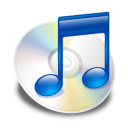It was good enough to be U2’s first top 40 hit in the USA, but NME magazine thought it sounded too much like “Sunday Bloody Sunday”, a complaint which has never made much sense to me. I’m talking, of course, about “Pride (In the Name of Love), the second most played song in all of U2’s catalog. With that statistic in mind, it’s easy to see why some critics feel that the band ought to abandon the song, and it’s true that on several post turn-of-the-century tours, “Pride” has been omitted from live shows occasionally (most notably the 360 Tour, on which the song was played at just under sixty percent of the shows) but “Pride (In the Name of Love)” is one of the greatest songs-to-shout-along-with ever written, and as such, I feel that it should be included in any and all future concerts given by our favorite Irish band. I’m pleased that it’s been included so far in every show of the Innocence + Experience Tour.
It seems that the song was originally planned to be a criticism of Ronald Reagan and his sense of pride in American military might, but before the final recording was made, Bono was struck by the life of American civil rights activist Martin Luther King, and so changed the lyrics accordingly. The song as we now know it contrasts the peaceful MLK with another civil rights activist, Martin X, who was a proponent of racism and hatred early in his life. Another advocate for peace, Jesus Christ, is also referenced in the lyric as the “one man betrayed by a kiss”, but exactly who Bono meant in the lines “one man washed up on an empty beach” and “one man caught on a barbed wire fence” is much less clear. I tend to think that Bono was speaking metaphorically about people who are trapped in difficult positions such as the one faced by those who stand up for peace even in the face of extreme unremitting violence. I really relate to this fascination Bono felt (and I think, continues to feel) for people of peace because, as he has stated, the idea of peace if so contrary to his nature. I think it’s contrary to all of our natures. If someone hurts us, it seems so logical to hurt them back, but the most humane, logical and dignified thing we can do is to turn the other cheek. That’s why “they” (violence-mongers) could not take MLK’s pride – because he refused to stoop to their level. What more could be given than one’s very life, all in the name of love for their fellow human? Of course, another famous line is the well-publicized error that Bono made in the final verse, stating that King’s assassination took place in the “early morning” of April fourth. In live concerts, Bono frequently changes the line to a more correct “early evening” (King was shot at about 6 pm, Memphis time.).
I have a distinct memory of standing in my dorm room with several others back at boarding school – more than twenty years ago, back when I was in my early teens – listening to the live version of this song from Rattle and Hum and shouting along to the chorus with all my heart. Even though I didn’t get the full import of the lyrics, I knew even then that the song was about the importance of peace and that by singing along like that, allowing myself to feel the feeling and to be moved by it, I was part of something greater than myself. It was one of the first times I felt the power and majesty of U2’s music and I realized then that “Pride” was an important song. It’s a song that I’m glad the band continue to perform and one that I feel strongly shouldn’t be left behind.
broadsword
Latest posts by broadsword (see all)
- U2 Vidworks – Love is Bigger Than Anything in its Way - November 22, 2021
- U2 VidWorks – Your Song Saved My Life - November 15, 2021
- U2101 – Your Song Saved My Life - November 8, 2021



